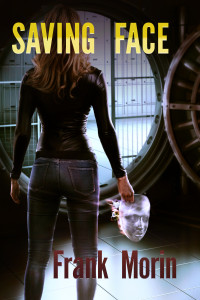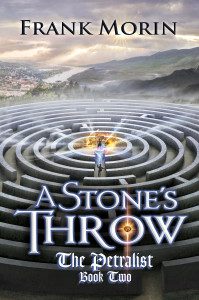I get it. You’re angry, furious even. Your masterpiece has been unjustly defamed by a cruddy review. You’ve received your millionth “dear author” rejection letter. Or some idiot at your publishing house has messed up your precious manuscript as they were shuffling it through the process of becoming a best seller. Whatever the cause, all you want to do is lash out and tell the world what a moron the offending individual has been. It’ll feel soooo good to write that scathing blog post, email, or response in the comments section. You’ll be witty and cutting. It’ll go viral. You know that the Internet cannot help but see that you are in the right, that your cause is just.
STOP.
Stop and take a deep breath. Take a walk, beat up a punching bag, or scream at the moon. But whatever you do, do not click send. Not in your current state at least. As good as it would make you feel, trust me, the catharsis isn’t worth it. The Internet never forgets, so why give it something that could come back to haunt you later? Furthermore, the publishing business is a small world where everyone knows everyone else. And, everyone talks. You DO NOT want to be the unflattering email that gets passed around the office. You do not want to end your career in a moment of pique.
So, what do you do? The first step is to acknowledge your emotion. You’re mad. You’re sad. You may be right to feel that way. You may be wrong. Frankly, it doesn’t matter. What matters is that you feel the emotions, that you admit to them, accept them, and then own them. Acknowledge that your feelings aren’t within your control, but how you act absolutely is. You won’t be judged for being angry, but you will be judged by how you behave.
The next step is to be thoughtful and deliberate in how you will react. The situation is already bad, so what’s the best case scenario for an ending? Chances are that a bad print run, a hostile review, or an impartial rejection cannot be changed. So then, what is in your control? Perception, specifically how others perceive you. Are you going to be the drama king/queen that flies off the handle or are you going to be the suave professional that takes the situation in stride? Will you let your baser instincts drive your reactions, or will you rise above them?
https://www.youtube.com/watch?v=1EpyOLO1tgE
Let’s be frank. You cannot use anger to win over someone who is determined to be hostile. More often than not, both parties simply make fools of themselves. If you don’t feed the haters, they’ll get bored and find the next person they can rile up. Like the wise samurai, leave them with their anger, jealousy, and vitriol. If you write the best book you can, keep improving your craft, and be a likable author, your fans will speak up for you. Their praise and fan-love will drown out the haters.
Impersonal rejection is part of the business. We all deal with it, and past rejection has no bearing on your future success. J.K. Rowling was rejected by, what? 12 different publishers? Now she’s one of the most loved and powerful voices in the world. Furthermore, there is no point in souring your relationship with an editor or agent just because your manuscript doesn’t fit their needs at this time. Throwing a fit just convinces them that you are too much trouble to be worth working with in the future. And they will share that opinion with all their friends and colleagues. By ranting at one closed door, you may destroy another opportunity.
Sometimes even major goofs can be turned to your advantage. I recently read a really suave blog post from an author I admire. He had written a short story for an anthology. Somehow, the end of his story was left out of the first run of printed books. What a big “ooops!” However, instead of expressing perfectly justifiable frustration, he publicly acknowledged that such mistakes sometimes happen. He went on to tell his fans that the publisher had fixed the problem and reordered the copies of the book, so future orders would be whole. However, there existed 50 books with the miss-print. Act fast, he urged us, and the publisher will sell you a signed copy of the miss-printed book paired with a special, one-run-only chapbook that contained the end of the story. That’s right! Only 50 of these items would ever exist. In so doing, he turned an embarrassing mistake into a collectible. Now, that’s smart business.
There are many things in this world that are beyond our direct control. Mistakes will be made. People will be hateful. Business deals won’t always go through. We will feel angry, frustrated, and disappointed when these things happen. However, how we choose to respond to these circumstances will define who we are. More importantly, it will shape how others think of us. In our media driven world, perception is power. It’s the power to sell books, close deals, and win over lifelong fans.
So you’ve acknowledged and mastered your emotions. Now you have a choice to make. Will you be the author who flies off the handle when things go wrong or will you be the suave professional? Will you be the voice that adds to the cacophony and catastrophe, or will you be the one to turn a bad situation into an opportunity? An emotionally driven outburst may make you feel better in the short run, but it often makes matters worse. So when you feel the need to unleash a heaping portion of righteous wrath, instead think… is the catharsis really worth it?








